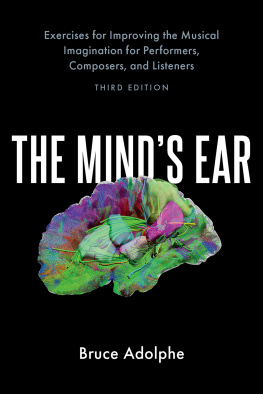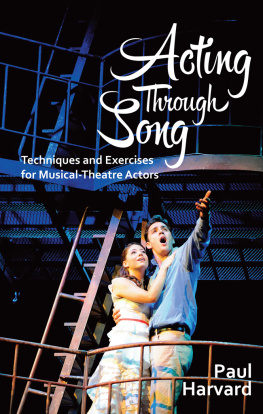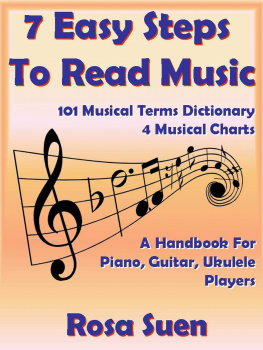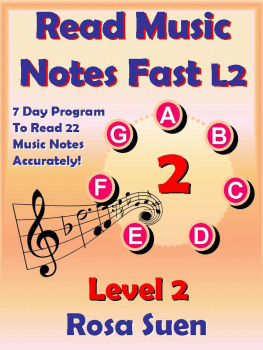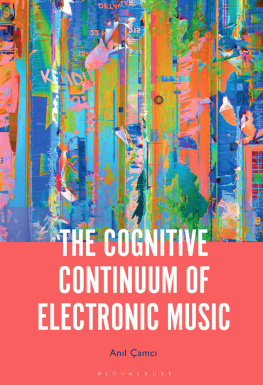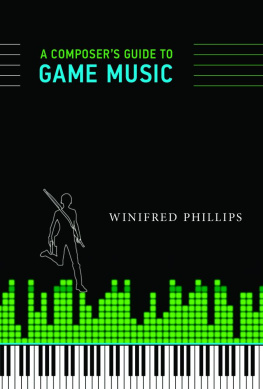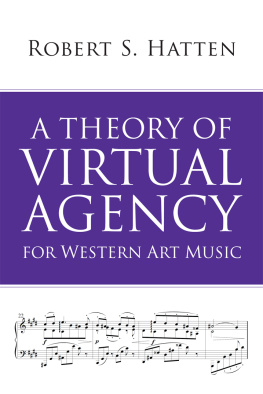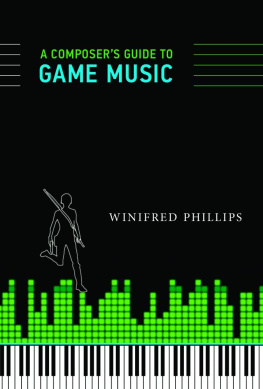The Minds Ear
Praise for the Second Edition
I have known Bruce Adolphe since my student days at Juilliard Pre-College. His insight and remarkable capacity for bringing music to life have stayed with me over the years. Bruces ability to make music and learning fresh and alive is unique. The first edition of this book was important to me when I first read it and the second edition is even more exciting and relevant.
alan gilbert, music director, The New York Philharmonic
Imagine how exciting it would be to hold in your hands a guide to a more joyfully free, creative engagement with music. Oh waityou are! Of course the imagination can be toned and exercised, and Bruce Adolphe is a most enthusiastic and inspiring personal trainer.
mark steinberg, violinist, Brentano String Quartet, Princeton University
Long known as one of our most articulate and charismatic speakers on music, Bruce Adolphe here gives us one of the freshest books on the musical imagination ever written. A quick glance at the materials followed by a self-test will confirm that the mature performer and the university professor have as much to learn from this book as the beginner. The book is an absolute gem, one that I periodically find myself opening at random as a starting point for pricking the imagination. Try opening it yourself, and I predict that you will find it difficult to put down.
glenn watkins, Earl V. Moore Professor Emeritus, University of Michigan, author of Soundings; Pyramids at the Louvre; Proof through the Night: Music and the Great War; and The Gesualdo Hex
Bruce Adolphes Senior Seminar at Juilliards Pre-College was a horizon-expanding, mind-broadening experience. This book contains dozens of exercises like the ones we used in that class. I find them just as rewarding today as I did then!
orli shaham, pianist
This unique book of musical imagination exercises is thoroughly infused with Bruce Adolphes engaging spirit and personality. Dozens of exercises inspire creativity and exploration while probing the depths of our inner ears and our intuition. I believe this is an invaluable resource for all musicians, pedagogues and listeners.
carol leone, d.m.a., chair of the Keyboard Department, associate professor of piano, Meadows School of the Arts, Southern Methodist University, Dallas, Texas
I often tell conducting students that the greatest conductors are those with the greatest imaginations. They hear in their minds what they would like the music to become and are tenacious and creative in making it happen. Bruce Adolphe's wonderful book presents tools to develop the artistic imagination. If technique is the servant of imagination, then Adolphe's book is the place to start!
jerry blackstone, professor of conducting; director of choirs; chair, Conducting Department, School of Music, Theatre and Dance, University of Michigan

Oxford University Press is a department of the University of Oxford. It furthers the Universitys objective of excellence in research, scholarship, and education by publishing worldwide. Oxford is a registered trade mark of Oxford University Press in the UK and certain other countries.
Published in the United States of America by Oxford University Press
198 Madison Avenue, New York, NY 10016, United States of America.
Oxford University Press 2021
All rights reserved. No part of this publication may be reproduced, stored in a retrieval system, or transmitted, in any form or by any means, without the prior permission in writing of Oxford University Press, or as expressly permitted by law, by license, or under terms agreed with the appropriate reproduction rights organization. Inquiries concerning reproduction outside the scope of the above should be sent to the Rights Department, Oxford University Press, at the address above.
You must not circulate this work in any other form and you must impose this same condition on any acquirer.
Library of Congress Control Number: 2021940511
ISBN 9780197576328 (pbk.)
ISBN 9780197576311 (hbk.)
ISBN 9780197576342 (epub.)
DOI: 10.1093/oso/9780197576311.001.0001
The original exercises were developed at The Juilliard School Pre-College Division Senior Seminar and the Performance Awareness Workshops at the Chamber Music Society of Lincoln Center.
The book is dedicated to my many students over many yearsat Juilliard, Yale, New York University, the Chamber Music Society of Lincoln Center, and at colleges and festivals too many to mention; to my friends at the Kinhaven Music School, where I was greatly inspired as a teenager; to Linda Granitto, who was director of the Juilliard Pre-College Division when the exercises were first developed; and of course, to my wife, Marija Stroke, and our daughter, Katja Stroke-Adolphe, both of whom have wonderful imaginations.
Contents
The first edition of The Minds Ear: Exercises for Improving the Musical Imagination for Performers, Composers, and Listeners was a small handbook of 40 exercises published in 1991 by MMB Music, Inc., which was my music publisher at the time. The exercises and games in that first volume were the consequence of my theater-game-inspired experiments with my students at the Juilliard Pre-College, where I taught from 1974 to 1993. During part of that period, I was not only teaching solfge, theory, and composition but also composing music for plays presented by the Juilliard Drama Division. My ongoing work with the Drama faculty resulted in frequent invitations to audit acting classes, which had an enormous impact on the central idea of this book.
Suzanne Ryan, then Editor in Chief, Humanities, at Oxford University Press, invited me to create a much expanded and revised second edition, which was published in 2013. For that edition, I doubled the number of exercises and wrote a series of essays about the musical imagination and about various methods of unleashing creativity.
This third edition, written in response to the kind invitation of Oxfords Michelle Chen and Norman Hirschy, includes 34 new exercises created to further explore concepts that inspire imaginative musicianship for performers, composers, and listeners through improvisations based on theater games, comedy improv methods, and the interplay of verbal and non-verbal thinking.
One aspect of The Minds Ear that has made it accessible and useful in varied educational situations from elementary schools to university music departments and conservatories is that the majority of the exercises/games are performable at any level of musical competence and experience, and in any musical style. Many of the improvisations do not specify any stylistic orientation or require a particular musical vocabulary, but rather focus on dramatic situations, emotional qualities, actions, and goals. This freedom from technical restrictions is an approach drawn from the theater world. Some of the exercises in this book do require familiarity with particular styles, sometimes introducing specific composers or performers, yet even these exercises offer a wide range of possibilities for students of varied experience.
My own musical background and professional life have been formed principally by the European Classical tradition, but my work is also richly informed by American popular songs, jazz music, and folk music from around the world, which I learned growing up because my parents were avid folk-dancers and teachers with a sizable collection of recordings.

